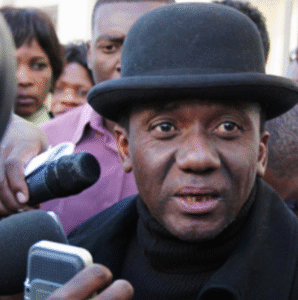KING MSWATI’S PRESENCE AT ZITF: A MOCKERY OF DEMOCRACY IN AFRICA
In a move that has raised eyebrows and sparked widespread debate, Zimbabwe recently played host to King Mswati III of Eswatini at the Zimbabwe International Trade Fair (ZITF). This high-profile event has long been a showcase for trade and investment opportunities in the region, but this year’s edition has inadvertently drawn attention to the concerning state of democracy in Africa.

King Mswati III, who has been in power since 1986, is Africa’s last absolute monarch. His rule over Eswatini has been marked by allegations of human rights abuses, suppression of political dissent, and a concerning lack of democratic principles. To many, his invitation to the ZITF event is not only an affront to the values of democracy and human rights but also a reflection of the wider challenges facing the African continent in its quest for political progress and stability.
Eswatini, formerly known as Swaziland, has been plagued by political unrest, economic stagnation, and social upheaval under King Mswati’s iron grip. The monarch maintains control over the nation’s government, economy, and judiciary, with political parties banned and the king enjoying the power to dissolve the country’s parliament at will. This autocratic rule has led to widespread poverty, high unemployment rates, and a climate of fear and repression.
Against this backdrop, the presence of King Mswati at an event designed to promote trade and investment opportunities in Zimbabwe is a stark reminder of the fragile state of democracy in the region. While Zimbabwe itself has struggled with its own political and economic challenges, the nation has taken steps towards greater democratic accountability and respect for human rights in recent years. The invitation extended to a ruler with such an abysmal human rights record threatens to undermine these efforts and sends a worrying message about the priorities of the Zimbabwean government.
The ZITF event is intended to foster economic growth and development in Zimbabwe, but by welcoming a dictator, the nation risks aligning itself with a regime that undermines the very principles upon which sustainable growth and progress depend. Democracy, transparency, and the rule of law are essential components of a healthy, vibrant economy. By ignoring these factors and prioritising short-term gains, Zimbabwe may find itself compromising its own long-term prospects for success.
Moreover, the decision to invite King Mswati to the ZITF event raises broader questions about the state of democracy in Africa. Across the continent, there has been a worrying trend of backsliding on democratic progress, with a rise in authoritarian regimes and a shrinking space for civil society and opposition voices. By inviting King Mswati, Zimbabwe risks tacitly endorsing his regime’s brutal policies and contributing to the erosion of democratic norms in the region.
The situation in Eswatini serves as a cautionary tale for the rest of Africa. The consequences of allowing unchecked power to be concentrated in the hands of one individual are dire and far-reaching, affecting not only the immediate population but also the prospects for peace, stability, and prosperity throughout the continent.
In light of these concerns, the Zimbabwean government’s decision to invite King Mswati to the ZITF event is a deeply troubling development. The move is a slap in the face to the millions of Africans striving for democracy, human rights, and justice, and undermines the very values that the ZITF is supposed to promote. Rather than embracing a dictator, Zimbabwe and the wider African community must reaffirm their commitment to democracy and the rule of law, ensuring that events like the ZITF are used to foster genuine progress and development, rather than providing a platform for autocrats to further entrench their power.
As Zimbabwe and other African nations look to the future, the challenge of promoting democracy and upholding human rights must be at the forefront of their collective efforts. Engaging with leaders who have demonstrated a commitment to these values will be essential in building a more prosperous, stable, and inclusive continent.
The ZITF event, in its truest sense, should be an opportunity for nations to come together and showcase their potential, sharing ideas and forging partnerships that benefit all involved. By turning a blind eye to King Mswati’s track record and extending an invitation to him, Zimbabwe risks undermining the very foundation upon which such progress can be built.
It is crucial that African leaders, as well as the international community, hold one another accountable for their actions and work together to ensure that democratic values are upheld and promoted. This means standing up against autocratic rulers like King Mswati III and choosing instead to engage with those who share a genuine commitment to building a brighter future for all.
The presence of King Mswati at the recent ZITF event in Zimbabwe has highlighted the ongoing struggle for democracy in Africa. It is a stark reminder of the challenges that lie ahead in the fight for political reform and the protection of human rights across the continent. It is incumbent upon all African nations, including Zimbabwe, to take a stand against the forces of authoritarianism and repression, and work tirelessly to build a more just, equitable, and democratic future for all their citizens.




